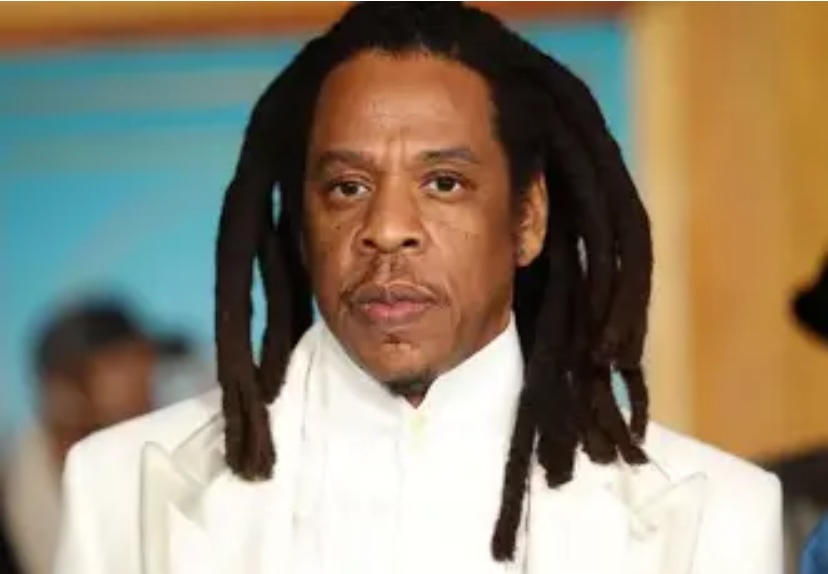The internet is buzzing after explosive allegations surfaced against rap mogul Jay-Z, accusing him of abusing a 13-year-old girl. A recent YouTube video dissecting the claims has gone viral, reigniting debates about power, accountability, and the dark side of fame. In this article, we break down the facts, analyze the evidence, and explore what this case means for both the accused and the broader cultural conversation.

The Allegations: What We Know So Far.
A lawsuit filed in a California court alleges that Jay-Z (Shawn Carter) engaged in inappropriate behavior with a minor over a decade ago. The plaintiff, now an adult, claims the rapper exploited his influence to manipulate and abuse her when she was 13. Key details from the legal documents and YouTube analysis include:
- The alleged incidents occurred during the mid-2000s.
- The plaintiff cites emotional distress and psychological trauma.
- Evidence presented includes witness testimonies and circumstantial timelines.
The YouTube video scrutinizes court filings, social media posts, and historical patterns of similar allegations in the entertainment industry. It raises questions about why this case is emerging now and whether systemic issues enable powerful figures to evade consequences.
Breaking Down the YouTube Video’s Key Arguments
The video, titled “Jay-Z’s Hidden Truth: Abuse Allegations Exposed,” methodically pieces together publicly available information. Here’s a condensed summary:
1. Timeline Analysis
- Matches the plaintiff’s age and career milestones of Jay-Z during the alleged period.
- Highlights gaps in the rapper’s public schedule that align with the accuser’s claims.
2. Witness Accounts
- Former associates and staff members describe a culture of secrecy around Jay-Z’s inner circle.
- One anonymous source claims, “Everyone knew, but no one spoke up.”
3. Legal Precedents
- References past settlements involving high-profile celebrities accused of similar misconduct.
- Questions whether nondisclosure agreements (NDAs) silenced potential victims.
4. Psychological Impact
- Experts weigh in on the long-term effects of childhood trauma linked to exploitation.
The video urges viewers to “connect the dots” rather than dismiss the claims outright. But does it provide conclusive proof, or is it speculative?
Public Reaction: Divided Opinions and Cultural Reckoning
Social media has erupted with heated debates. Fans argue the allegations are a smear campaign, while activists emphasize believing survivors. Here’s what you’re seeing online:
- Support for the Plaintiff
- JusticeForSurvivors trends on Twitter, with users sharing personal stories of abuse.
- Advocates criticize the entertainment industry for protecting powerful men.
- Defense of Jay-Z
- Loyalists point to his philanthropic work and clean public image.
- Skeptics demand concrete evidence before passing judgment.
- Neutral Observers
- Many urge caution, stressing that due process must prevail.
This divide reflects a larger cultural tension: How do we balance accountability with the presumption of innocence?
Legal Implications: What Happens Next?
Legal experts outline three potential outcomes for this case:
1. Settlement
- Jay-Z’s team could negotiate a private settlement to avoid a public trial.
- Past cases (e.g., R. Kelly, Bill Cosby) show this strategy often backfires.
2. Dismissal
- The court may throw out the case if evidence is deemed insufficient.
3. Trial
- A jury would decide the verdict, but the process could take years.
The statute of limitations for child abuse in California is complex. While minors have until age 40 to file civil claims, criminal charges face stricter deadlines.
Broader Cultural Questions: Fame, Power, and Accountability
This case forces us to confront uncomfortable truths about celebrity culture:
- Why do abuse allegations against stars often surface years later?
- Fear of retaliation, shame, and institutional gatekeeping silence victims.
- Does fame inherently corrupt, or are abusers drawn to power?
- Studies show power imbalances increase the risk of exploitation.
- How can we better protect vulnerable individuals?
- Stricter industry regulations and survivor-centered legal reforms are critical.
Lessons From History: Patterns in Celebrity Scandals
The YouTube video draws parallels to other high-profile cases:
- R. Kelly
- Decades of allegations culminated in a 2021 conviction.
- Public awareness grew only after the documentary “Surviving R. Kelly” aired.
- Harvey Weinstein
- The #MeToo movement exposed systemic abuse in Hollywood.
- Michael Jackson
- Posthumous allegations in “Leaving Neverland” sparked global controversy.
These cases show how money, influence, and legal loopholes delay justice—but public pressure can tip the scales.
Your Role in the Conversation:
As a consumer of media, you hold power. Here’s how to engage responsibly:
1. Stay Informed
- Verify sources before sharing claims.
- Follow updates from reputable outlets like “The New York Times” or “BBC”.
2. Amplify Survivor Voices
- Listen without judgment.
- Support organizations like RAINN or the National Children’s Alliance.
3. Demand Transparency
- Hold platforms accountable for promoting credible journalism over sensationalism.
4. Reflect on Bias
- Ask yourself: Would I react differently if the accused weren’t famous?
Final Thoughts: Truth, Justice, and the Road Ahead
The allegations against Jay-Z are a litmus test for societal progress. Will we repeat past mistakes, or forge a path toward accountability? While the truth remains unclear, this case underscores the need for systemic change—in courts, newsrooms, and our collective mindset.
What steps will you take to ensure power isn’t abused in the shadows?




No comments:
Post a Comment